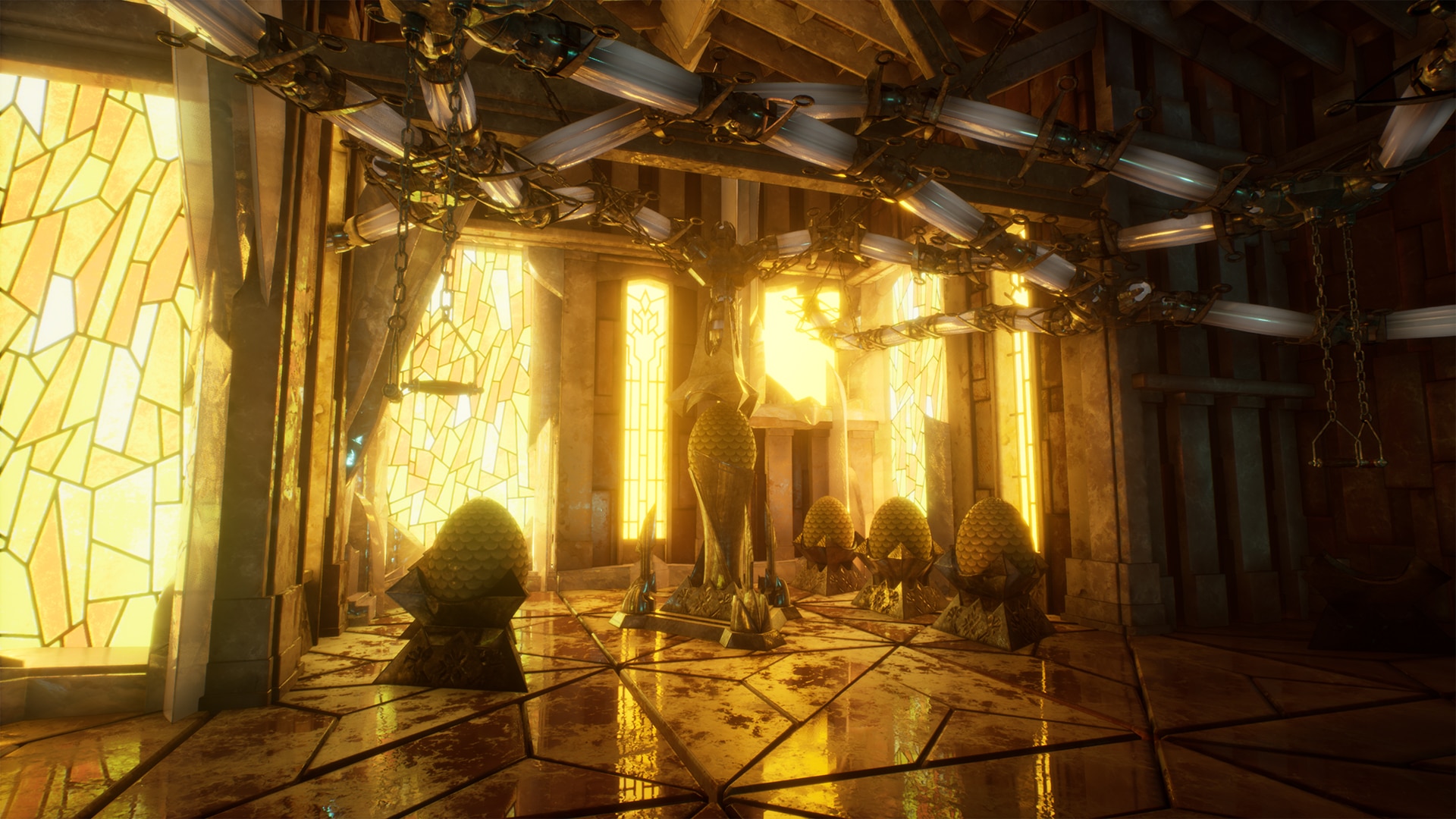Operencia: The Stolen Sun isn’t your typical VR RPG port. We break down what works (and what doesn’t) in our full Operencia: The Stolen Sun VR review.
In recent years, the classic genre of turn-based first-person RPGs has made a bit of a comeback and Zen Software’s Operencia: the Stolen Sun was one of the best of the bunch. Tile and turn-based movements—where the player moves a set tile length each push forward—seems like an ideal way to alleviate motion sickness problems in VR. Operencia, however, skirts the line between traditional movement and free-roaming, and its more natural open world is a far cry from confined square dungeons this genre usually sticks to.
The game’s transition to VR is something current fans of the game will likely appreciate more than newcomers. Our initial dive into the Oculus store version of the game was problematic, because a controller bug made it impossible to play until magically it wasn’t. More than that, the Oculus Store version is the only version of the three (It’s on Steam, of course, and PlayStation 4) where you don’t get the non-VR version as well.
This is an issue for a variety of reasons, but mostly because we just didn’t feel as compelled to play Operencia entirely in VR. That aside, the bigger problem is this is a perfect example of a non-VR game just shoved into VR with few (if any) changes beyond the visual immersion upgrade. While you can technically play it with VR controls, they act just like traditional controls and none of the game mechanics or visuals have been altered.

So, it’s literally like playing the base game with the ability to look in all directions easily. Obviously, there’s an appeal to this. Operencia is a great RPG and getting a closer look at the colorful, detailed fantasy world is nice, but everything else feels phoned in. Particularly performance. Turn-based tile-movement proved a necessity in our testing, because free-movement had a distinct habit of tanking the framerate.
For this kind of game style to really work well, the maps are intentionally done in a definitive grid-fashion, but Operencia doesn’t do that. Its world is curvy, contoured, often circular. Grid-based movements don’t mesh well with it, making free-movements feel much more natural here. A perfect example is right at the start of the game, where a large gaping hole has opened up and the player has to perform a simple light reflecting puzzle to place a magical seal over it.
Moving in stiff lines and sharp angles around a circle just feels silly, and in VR this disjunction of level design and movement style feels especially abrupt. The turn-based combat system was always excellent and actually looks great in VR, but again, feels like a lost opportunity to expand the overall genre by including anything specific to the power of VR beyond looks.
Looking at Operencia from just the VR point of view does paint a grimmer picture than the game as a whole deserves. It’s an excellent RPG, melding bits and pieces from the classic games it was inspired by and newer epics like Skyrim. The turn-based combat system feels immediately familiar for anyone who has played any number of western and Japanese RPGs.
Taking a party of up four traditional fantasy characters—warriors, archers, clerics, spell-slinging wizards, etc.—players will face off against a horde of different monsters. The game’s setting and characters are entirely familiar, so troll, orc, and goblin-like critters, dragons, demons, evil humans, creepy crawlies, and plenty of other monsters await their turn to grind the player down.
The interface for combat is kept fairly simple. The left side of the screen shows turn order, so you know who attacks next. The bottom panel is the array of moves the current player character can perform. Many actions can affect a group of enemies at once or perform a single power attack, but require a cooldown period. So, balancing offense, defence, and healing elements is vital. Combat might be turn-based, but moves at a brisk pace and the accompanying visuals are fun.
Monsters slash in the air with great effect, but aside from a small indicator of the injured character’s icon and some audio cues, you never see any of your team. This is pretty standard in old first-person RPGs, but in VR a little more visual direction would have been appreciated. Either way, Operencia’s combat is definitely keeping in character with the types of games it’s emulating.
Operencia: the Stolen Sun Review Final Verdict
Operencia: the Stolen Sun is an excellent RPG with a lot of great qualities. It looks good, the classic turn-based combat is well done, and the world itself feels expansive. Players can expect between 20-30 hours of adventure as well, so it’s a fairly lengthy game.
For RPG lovers who haven’t checked out Operencia, it’s absolutely recommendable. For a VR-only release, it’s less of a sure bet. Avoid the Oculus Store version and go for either the Steam or PlayStation versions since those let you play the game however you like.


For more on how we arrive at our scores, check out our review guidelines.

Operencia: The Stolen Sun is available now for PC or with optional VR support on both SteamVR and Oculus Home for PC.






